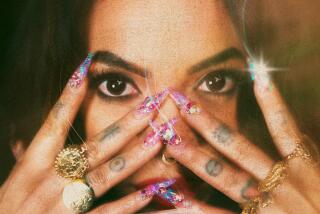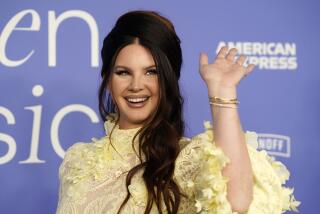Think of ‘Witch’ as in ‘Wise,’ Not ‘Wicked’
- Share via
Headlines for the Diana Haun murder trial, recounting her alleged involvement in “witchcraft” and allegations that the murder was a “human sacrifice,” send chills up the spines of those of us in the Wicca (witchcraft) religious community.
Here is a woman for whom there appears to be considerable evidence supporting a murder conviction. Alarmingly, a part of that evidence is testimony that she has claimed to be a witch. In fact, the mention of “witchcraft” provides some of the most sensationalistic elements of the case.
To complicate matters, Haun appears to have called herself a witch in order to evoke fear of her powers.
Underlying the attitudes that make the allegations of witchcraft a sensation are deep-seated prejudices that have been fused in the symbol of the evil, ugly, old “witch” of folklore.
This prejudice is clear when one realizes that in a murder case involving, for example, a Christian, we don’t see headlines that read: “Witness Says Defendant Called Herself a Christian.” No, that would not be considered relevant because Christianity is associated in this culture with the best that human beings strive to be. In fact, if a defendant attended church on a regular basis, this would be evidence seeming to cut against a guilty verdict.
On the other hand, the very words witch and witchcraft lead one to expect the worst attributes of humankind--selfishness, cruelty, evil intentions. So allegations of witchcraft lead all involved to conclude that the defendant is more likely to be guilty. Why?
The reason can be found in the symbol of the Evil Witch, which derives from the Middle Ages, when the Catholic Church condemned the country folk who continued to practice the “old religion.” One major old religion icon was the Wise Old Crone, viewed as the source of ultimate wisdom. As the church vilified the old religion, however, the image of the Wise Old Crone was distorted--demonized. She became the repository for the fears, superstitions and prejudices of the majority popular culture--a symbol used to justify the torture, rape and execution (by burning at the stake) of many people.
This distorted image comes to us today as the Evil Witch of folklore and fantasy. But for those of us who still practice the old religion, it is a reminder that when prejudice takes hold, it has dire consequences. One wonders what images of the Jews would now pervade popular consciousness had Hitler succeeded in annihilating them, leaving behind only his analogies to rats.
I am waiting for the day when the label “witch” is understood to stand for what it is--someone who strives to manifest the Divine Spirit in the world. I am waiting for the day when the headline “Witness Says Defendant Called Herself a Witch” is understood to mean that the defendant is someone who normally adheres to the high moral standards to which Wicca aspires.
I am waiting for the day when there are no groups of people for which there is any name that labels them as inherently suspect or evil. Throughout history, that negative label has been variously “Christian,” “pagan” “witch,” “Arab” and “Jew,” among others. Will humanity ever stop finding a scapegoat upon which to project its most negative assessment of itself?


